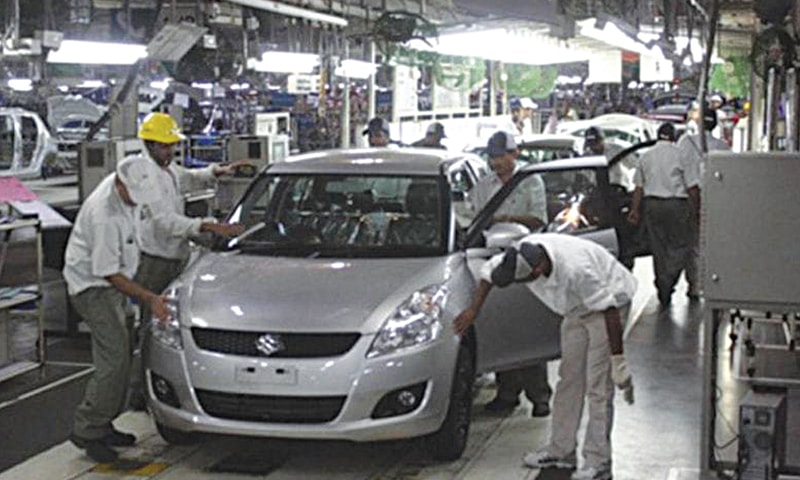ISLAMABAD: Pakistan’s large-scale manufacturing (LSM) shrank for eighth month in row, raising fears of layoffs across the industrial sector.
The LSM index contracted by 4.61 per cent year-on-year in November, the Pakistan Bureau of Statistics (PBS) reported on Friday.
Between July and November, the big industry output declined 5.93pc on a yearly basis.
At a time when LSM is on a downward trajectory, the Commerce Division has notified second phase of reduction in tariffs under the Free Trade Agreement to boost exports to China, but the shrinking industrial base belies that claim.
The latest monthly decrease was mainly led by a 44.94pc plunge in electronic goods, 44.67pc in automobile, 19.04pc engineering products and 8.74pc iron and steel.
In 2018-19, the large manufacturing sectors recorded a decline of 3.64pc against the target growth of 8.1pc. The government has set LSM target of 3.1pc for the ongoing fiscal year.
Sector wise, production of 11 items under the Oil Companies Advisory Committee edged lower by 0.34pc, 36 under the Ministry of Industries and Production shrank by 2.73pc and 65 reported by the Provincial Bureaus of Statistics dipped 1.54pc.
The lacklustre performance in the industrial sector reflects overall economic slowdown in the ongoing fiscal year. The State Bank of Pakistan estimates the economy to grow by 3.5pc in 2019-20.
LSM constitutes 80pc of the country’s total manufacturing and accounts for nearly 10.7pc of the overall national output. In comparison, small-scale manufacturing accounts for just 1.8pc of GDP and 13.7pc in manufacturing.
Auto sector, which has seen massive decline in sales over the last few quarters, witnessed multiple upward price revisions due to currency depreciation, which kept potential buyers at bay. On a yearly basis, the sector registered sales decrease in almost all variants during the first half of 2019-20.
The production of tractors dipped by 38.83pc, trucks 44.44pc, buses 35.35pc, jeeps and cars 64.69pc, LCVs 64.14pc and motor cycles 0.99pc.
Pharmaceutical also suffered due to a considerable lag in regulatory adjustments in prices, closing down of raw material imports from India which, in addition to the weakening of local currency, added to the distress on the import-dependent sector.
As a result, the production of syrups declined by 6.5pc, and tablets 0.87pc. However, output of injections increased by 6.08pc and capsules 10.23pc during November.
Similarly, lower sugarcane output and carry-forward from last year’s inventories further dampened the prospects of sugar industry. Among non-metallic mineral products, cement was up 8.14pc in November, led by increase in construction activity.
Moreover, production of cooking oil and vegetable ghee went up by 7.85pc and 15.56pc, respectively. However, blended tea production fell by 13.97pc.
According to Annual Plan 2019-20, the industry output is expected to expand in this fiscal year with the implementation of envisaged policy measures. It anticipates private sector investment to lead the revival of economic activity with the help of regulatory support through public sector.
However, in the high interest rate environment, it is unlikely that private sector can trigger economic expansion or increase investment.
Moreover, the LSM data reveals various factors that led to the slowdown including lower public development expenditures, deceleration in private construction activities and declining consumer spending on durable goods.
Published in Dawn, January 18th, 2020
















































